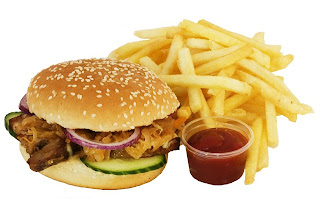Calories make you fat - true or false?
Calories Make You Overweight - True Or False?
There are several reasons that people become fat. You really can never isolate just one reason because everyone is unique and the reason one person is fat will probably not be the same reason that someone else is overweight. Some of the reasons that someone can be fat are because of their hereditary, lifestyle and eating habits.
A calorie is unit that measures the amount of energy produced from the food that we eat. Our bodies use calories to think, run, breathe and really keep your body running. The popular development nowadays is to keep a journal|log|record} of the amount of calories a person eats in a day. Calorie counting works! If you start counting the total of calories you consume everyday and you burn more calories than you consume, you will lose your excess weight.
You can eat as frequently as you want and still not be fat as long as you are able to burn off more calories than you are consuming. In order to burn calories you will need to do exercise and workout. Try to sustain a well balanced diet and eat numerous meals a day.
Numerous people are just ill-fated genetically. If your parents and grandparents are chubby, you are more probable to become chubby than someone who has parents who are thin. A person’s lifestyle can also cause a somebody to become chubby, if your work has you sitting around on a chair all day then you are more prone to become overweight than someone with an active job. Lastly, if you hit up the gym often then you will be less likely to be overweight than someone who has never stepped inside a gym. With that said that all of these individuals mentioned above can be healthy if they watched how many calories they consumed everyday.
Remember even though you can remain lean if you don’t eat and consume enough calories you may be doing more detriment than good. Your body needs a certain amount of calories everyday. A low calorie diet can lead to serious health issues.
Also, all calories are not produced equally. Don’t just put a ton of junk in your body just because it contains a low amount of calories or tastes good. Many sweet and sugary drinks that are bad for you and are considered empty calories. Empty calories hold no nutrients. Calorie counting can prevent you from becoming chubby but just you aren’t overweight doesn’t mean you are healthy. Exercise, eat a balanced meal and don’t skip meals while counting calories and you’ll be skinny and healthy.
Kilojoules and calories calculations:
We normally refer to kilocalories as Calories, so when you see 800 calories on a food label it actually means 800 kilocalories, and the same applies when you calculate an activity that burns 800 calories. When referring to food consumption and energy expenditure we refer to them in multiples of 1,000. Thus 1,000 calories = 1 kilocalorie or kcal.A calorie is the amount of energy (or heat) needed to increase the temperature of one gram of water by 1C. So 1000 calories = 1 kilocalorie, is the energy it takes to raise the temperature of 1kg of water by 1 degree Celsius.There are 239 calories in 1 kilojoule - A joule is a 1 unit of electrical energy it takes to equal the current of 1 ampere passed through a resistance of 1 ohm for one second. 1,000 joules = 1 kilojoules or kJ.One calorie has the same energy value as 4.186 kilojoules. It takes 3,500 calories to equal one pound of body weight.
1 calorie = 4.2 joules so 1 kilocalorie = 4.2 kilojoules.
The energy value per GRAM of various food components includes:
- Water = 0kJ (0 Cal)
- Protein = 17kJ (4 Cal)
- Dietary fibre = 13kJ (3 Cal)
- Fat = 37kJ (9 Cal)
- Alcohol = 29kJ (7 Cal)
- Carbohydrates = 16kJ (4 Cal)



Comments
Post a Comment